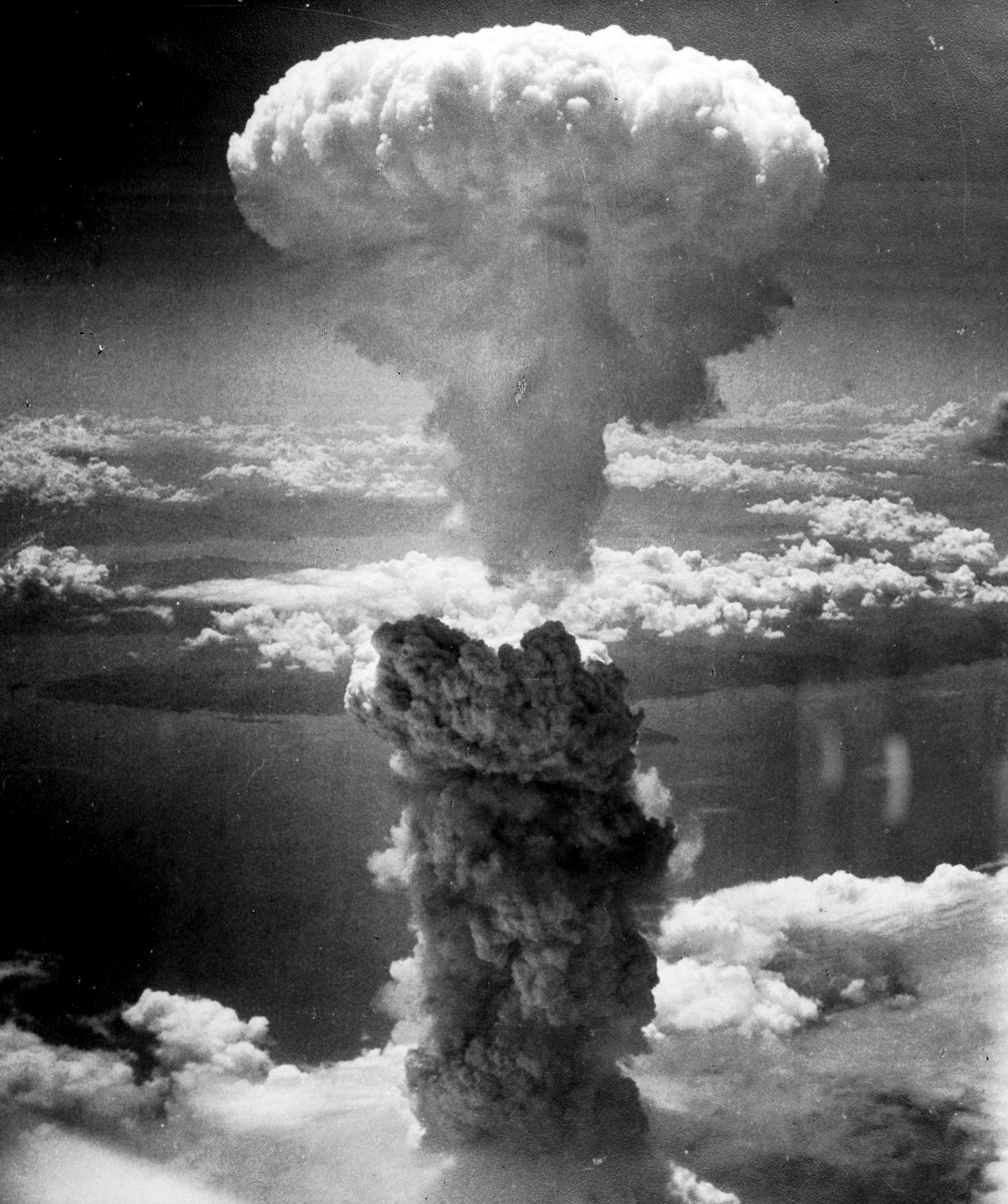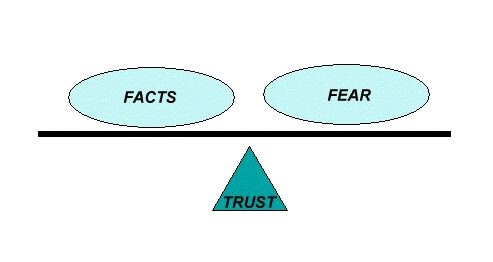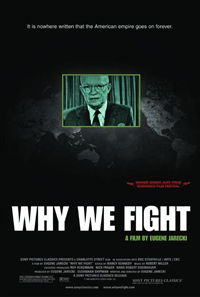

click here to view the Unauthorized Biography of Dick Cheney
The following was retrieved from: http://en.wikipedia.org/wiki/New_World_Order_(conspiracy)
New World Order (Novus Ordo Mundi) refers to a conspiracy theory in which a powerful and secretive group (Illuminati, Freemasons, etc.) has created a secret plan to eventually rule the world via a unitary (as opposed to federal) world government
Contents:
1 The Basics
2 Signs
3 Ideologies
4 Connections between theory and nationalism
5 Historical manipulations
6 Predicted socio-political changes
7 Other theories
8 Annuit Cœptis Novus Ordo Seclorum
9 References
10 See also
11 Conspiracist literature
12 References in fiction to the New World Order
13 External links


the following was retrieved from:http://en.wikipedia.org/wiki/Anarcho-primitivism
Anarcho-primitivism is an anarchist critique of the origins and progress of civilization. Primitivists argue that the shift from hunter-gatherer to agricultural subsistence gave rise to social stratification, coercion, and alienation. They advocate a return to non-"civilized" ways of life through deindustrialisation, abolition of division of labour or specialization, and abandonment of technology. There are however numerous other non-anarchist forms of primitivism, and not all primitivists point to the same phenomenon as the source of modern, civilized problems. Some, like Theodore Kaczynski, see only the Industrial Revolution as the problem, others point to various developments in history such as monotheism, writing, the use of metal tools, etc. The Aryan Anarchist Lala Hardayal claimed that the ideal social order existed in the legendary vedic period, where he claims there were no governors and no governed. He moved to America to promote what he considered ancient Aryan culture. Many traditional anarchists reject the critique of civilization while some endorse it but do not consider themselves primitivists such as Wolfi Landstreicher. Anarcho-primitivists are often distinguished by their focus on the praxis of achieving a feral state through "rewilding".
Contents:
1.Concepts
1.1 Civilization
1.2 A Critique of Symbolic Culture
1.3 The Domestication of Life
1.4 The Origins and Dynamics of Patriarchy
1.5 Division of Labor and Specialization
1.6 Rejection of Science
1.7 The Problem of Technology
1.8 Production and Industrialism
1.9 Beyond Leftism
1.10 Against Mass Society
1.11 Liberation and Organization
1.12 Revolution vs. Reform
1.13 Influences
1.14 Rewilding and Reconnection
1.15 Associations
2 Criticism
2.1 External links
3 See also
4 References
5 External links
-----
Concepts
Primitivists argue that prior to the advent of agriculture humans lived in small, nomadic bands which were socially, politically, and economically egalitarian. Being without hierarchy, these bands are sometimes viewed as embodying a precursor to anarchism.
John Moore writes that anarcho-primitivism seeks:
"to expose, challenge and abolish all the multiple forms of power that structure the individual, social relations, and interrelations with the natural world." [1]
Primitivists hold that as a result of agriculture, societies became increasingly beholden to technological processes and abstract power structures arising from the division of labour and hierarchism. Primitivists disagree over what degree of horticulture might be present in an anarchist society, with some arguing that permaculture could have a role but others advocating a strictly hunter-gatherer subsistence.
Despite its rejection of scientism, primitivism has drawn heavily on cultural anthropology and archaeology. Within the last half-century, societies once viewed as barbaric have been largely reevaluated by academics, many of whom now hold that early humans lived in relative peace and prosperity. For instance Frank Hole, an early-agriculture specialist, and Kent Flannery, a specialist in Mesoamerican civilization, have noted that, "No group on earth has more leisure time than hunters and gatherers, who spend it primarily on games, conversation and relaxing."(Kirkpatrick Sale, "Dwellers in the Land: The Bioregional Vision")
Scholars such as Karl Polanyi and Marshall Sahlins characterized primitive societies as gift economies with "goods valued for their utility or beauty rather than cost; commodities exchanged more on the basis of need than of exchange value; distribution to the society at large without regard to labor that members have invested; labor performed without the idea of a wage in return or individual benefit, indeed largely without the notion of 'work' at all." [2].
Other scholars and thinkers such as Paul Shepard, influenced by anthropologist Claude Lévi-Strauss, have written of the "evolutionary principle" which roughly states that a species removed from its natural habitat and behaviors will become pathological. Shepard has written at length on ways in which the disruption of man's natural "ontogeny" which developed through thousands of years of evolution in a foraging mode of existence has been disrupted due to a sedentary lifestyle caused by agriculture, [3].
---
[edit]
Civilization
Primitivists view civilization as the logic, institutions, and physical apparatus of domestication, control and domination. They focus primarily on the question of origins. Civilization is seen as the underlying problem or root of oppression, and it is believed that it needs to be dismantled or destroyed.
Primitivists describe the rise of civilization as the shift over the past 10,000 years from an existence within and deeply connected to the web of life, to one separated from and in control of the rest of life. They argue that prior to civilization there generally existed ample leisure time, considerable gender autonomy and equality, a non-destructive approach to the natural world, the absence of organized violence, no mediating or formal institutions, and strong health and robusticity. Primitivists state that civilization inaugurated warfare, the subjugation of women, population growth, drudge work, concepts of property, entrenched hierarchies, and virtually every known disease. They claim that civilization begins with and relies on an enforced renunciation of instinctual freedom and that it is impossible to reform away such a renunciation.
[edit]
A Critique of Symbolic Culture
Primitivists view the shift towards an almost exclusively symbolic culture as highly problematic, in the sense that it separates us from a direct interaction. Often the response to this questioning is, “So, you just want to grunt?" This might be the desire of a few, but typically the critique is a look at the problems inherent with a form of communication and comprehension that relies primarily on symbolic thought at the expense (and even exclusion) of other sensual and unmediated means. The emphasis on the symbolic is a movement from direct experience into mediated experience in the form of language, art, number, time, etc.
Primitivists argue that symbolic culture filters our entire perception through formal and informal symbols. It’s beyond just giving things names, but having an entire relationship to the world that comes through the lens of representation. It is debatable as to whether humans are “hard-wired” for symbolic thought or if it developed as a cultural change or adaptation, but, say primitivists, the symbolic mode of expression and understanding is limited and its over-dependence leads to objectification, alienation, and a tunnel vision of perception. Many primitivists promote and practice getting in touch with and rekindling dormant or underutilized methods of interaction and cognition, such as touch and smell, as well as experimenting with and developing unique and personal modes of comprehension and expression.
[edit]
The Domestication of Life
Domestication, according to primitivists, is the process that civilization uses to indoctrinate and control life according to its logic. The mechanisms of domestication are said to include: taming, breeding, genetically modifying, schooling, caging, intimidating, coercing, extorting, promising, governing, enslaving, terrorizing, murdering, etc. Primitivists say their movement and effects are examined and felt throughout society, enforced through various institutions, rituals, and customs.
Primitivists also describe it as the process by which previously nomadic human populations shift towards sedentary or settled existence through agriculture and animal husbandry. They claim that this kind of domestication demands a totalitarian relationship with both the land and the plants and animals being domesticated. They say that whereas in a state of wildness, all life shares and competes for resources, domestication destroys this balance. The domesticated landscape (e.g. pastoral lands/agricultural fields, and to a lesser degree - horticulture and gardening) is seen to necessitate the end of open sharing of the resources that formerly existed; where once “this was everyones’s,” it is now “mine.” Primitivists argue that this notion of ownership laid the foundation for social hierarchy as property and power emerged.
To primitivists domestication not only changes the ecology from a free to a totalitarian order, it enslaves the species that are domesticated.
[edit]
The Origins and Dynamics of Patriarchy
Primitivists hold that toward the beginning in the shift to civilization, an early product of domestication is patriarchy: the formalization of male domination and the development of institutions which reinforce it. Primitivists say that by creating false gender distinctions and divisions between men and women, civilization, again, creates an “other” that can be objectified, controlled, dominated, utilized, and commodified. They see this as running parallel to the domestication of plants for agriculture and animals for herding, in general dynamics, and also in the specifics like the control of reproduction. Primitivists say that as in other realms of social stratification, roles are assigned to women in order to establish a very rigid and predictable order, beneficial to hierarchy. They claim that woman came to be seen as property, no different than the crops in the field or the sheep in the pasture. Primitivists argue that ownership and absolute control, whether of land, plants, animals, slaves, children, or women, is part of the established dynamic of civilization.
Patriarchy, to a primitivist, demands the subjugation of the feminine and the usurpation of nature, propelling us toward total annihilation. They argue further that it defines power, control and dominion over wildness, freedom and life. They say that patriarchal conditioning dictates all of our interactions: with ourselves, our sexuality, our relationships to each other, and our relationship to nature. They claim it severely limits the spectrum of possible experience.
[edit]
Division of Labor and Specialization
Primitivists tend to see division of labor and specialization as fundamental and irreconcilable problems, decisive to social relationship within civilization. They see this disconnecting of the ability to care for ourselves and provide for our own needs as a technique of separation and dis-empowerment perpetuated by civilization. Specialization is seen as leading to inevitable inequalities of influence and undermining egalitarian relationships.
[edit]
Rejection of Science
Primitivists reject modern, mechanistic science as a method of understanding the world. Science, in the manner it is most often conducted today, is not considered neutral. It is seen as loaded with the motives and assumptions that come out of, and reinforce, civilization.
Modern science is understood as attempting to see the world as a collection of separate objects to be observed and understood. In order to accomplish this task the scientist must distance themselves emotionally and physically, to have a one-way channel of information moving from the observed thing to the self, which is defined as not a part of that thing.
Primitivists argue that this is a mechanistic view tantamount to being the dominant religion of our time. As science seeks to deal only with the quantitative, primitivists suggest that it does not admit values or emotions. While science claims that only things that are reproducible, predictable and the same for all observers are real and important, primitivists say that reality itself is not reproducible, predictable or the same for all observers.
Science is seen by primitivists as only partially considering reality, a criticism made against modern science by many, that of its putative reductionism. Observability, objectifiability, quantifiability, predictability, controllability and uniformity are said to be the methods and goals of science. This, say primitivists, leads to the world view that everything should be objectified, quantified, controlled and in uniform with everything and everyone else. Primitivists also see science as promoting the idea that anomalous experience, anomalous ideas and anomalous people should be cast off or destroyed like imperfectly shaped machine components.
[edit]
The Problem of Technology
Primitivists reject modern technology completely. They see it as a complex system involving division of labor, resource extraction, and exploitation for the benefit of those who implement its process. They argue that the interface with and result of technology is always an alienated, mediated, and distorted reality. Technology too, just like science, is seen as not neutral. The values and goals of those who produce and control technology are believed to always be embedded within it.
Technology is held to be distinct from simple tools in many regards. A simple tool is considered a temporary usage of an element within our immediate surroundings used for a specific task. Tools are not viewed to involve complex systems which alienate the user from the act. Primitivists claim that implicit in technology is this separation, creating an unhealthy and mediated experience which leads to various forms of authority. Domination is said to increase every time a new “time-saving” technology is created, as primitivists claim it necessitates the construction of more technology to support, fuel, maintain and repair the original technology. It is argued by primitivists that this leads very rapidly to the establishment of a complex technological system that seems to have an existence independent of the humans who created it. Primitivists believe that this system methodically destroys, eliminates, or subordinates the natural world, constructing a world fit only for machines.
[edit]
Production and Industrialism
According to primitivists a key component of the modern techno-capitalist structure is industrialism, the mechanized system of production built on centralized power and the exploitation of people and nature. Industrialism cannot exist, they say, without genocide, ecocide, and colonialism. They further say that to maintain it, coercion, land evictions, forced labor, cultural destruction, assimilation, ecological devastation and global trade are accepted as necessary, even benign. Primitivists claim industrialism’s standardization of life objectifies and commodifies it, viewing all life as a potential resource. They see their critique of industrialism as a natural extension of the anarchist critique of the state because they see industrialism as inherently authoritarian.
The primitivist argument against industrialism is such: In order to maintain an industrial society, one must set out to conquer and colonize lands in order to acquire (generally) non-renewable resources to fuel and grease the machines. This colonialism is rationalized by racism, sexism, and cultural chauvinism. In the process of acquiring these resources, people must be forced off their land. And in order to make people work in the factories that produce the machines, they must be enslaved, made dependent, and otherwise subjected to the destructive, toxic, degrading industrial system.
Primitivists hold that Industrialism cannot exist without massive centralization and specialization. Furthermore, they hold that industrialism demands that resources be shipped from all over the globe in order to perpetuate its existence, and this globalism, they say, undermines local autonomy and self-sufficiency.
Finally primitivists contend that it is a mechanistic worldview that is behind industrialism and that this same world-view has justified slavery, exterminations and the subjugation of women.
[edit]
Beyond Leftism
Primitivists do not see themselves as part of the Left (see also post-left anarchy). Rather they view the socialist and liberal orientations as bankrupt. Primitivists argue that the Left has proven itself to be a monumental failure in its objectives. The Left, according to primitivists, is a general term and can roughly describe all socialist leanings (from social democrats and liberals to Maoists and Stalinists) which wish to re-socialize “the masses” into a more “progessive” agenda, often using coercive and manipulative approaches in order to create a false “unity” or the creation of political parties. While primitivists understand that the methods or extremes in implementation may differ, the overall push is seen as the same: the institution of a collectivized and monolithic world-view based on morality.
[edit]
Against Mass Society
Most anarchists and “revolutionaries" spend a significant portion of their time developing schemes and mechanisms for production, distribution, adjudication, and communication between large numbers of people; in other words, the functioning of a complex society. Primitivists do not accept the premise of global (or even regional) social, political, and economic coordination and interdependence, or the organization needed for their administration. They reject mass society for practical and philosophical reasons. First, they reject the inherent representation necessary for the functioning of situations outside the realm of direct experience (completely decentralized modes of existence). They do not wish to run society or organize a different society.
They want a completely different frame of reference. They want a world where each group is autonomous and decides on its own terms how to live, with all interactions based on affinity, free and open, and non-coercive. They want a life which they live, not one which is run.
According to primitivists mass society brutally collides not only with autonomy and the individual, but also with the earth. They see it as simply not sustainable (in terms of the resource extraction, transportation, and communication systems necessary for any global economic system) to continue on with, or to provide alternative plans for a mass society.
[edit]
Liberation and Organization
Primitivists argue that organizational models only provide us with more of the same. While it is recognized by some primitivists that there might be an occasional good intention, the organizational model is seen as coming from an inherently paternalistic and distrusting mindset which they hold is contradictory to anarchy. Primitivists believe that true relationships of affinity come from a deep understanding of one another through intimate need-based relationships of day-to-day life, not relationships based on organizations, ideologies, or abstract ideas. They say that the organizational model suppresses individual needs and desires for “the good of the collective” as it attempts to standardize both resistance and vision. From parties, to platforms, to federations, primitivists argue that as the scale of projects increase, the meaning and relevance they have for one’s own life decrease.
Rather than the familiar organizational model primitivists advocate for the use of informal, affinity-based associations that they claim tend to minimize alienation from decisions and processes, and reduce mediation between our desires and our actions.
[edit]
Revolution vs. Reform
As anarchists, primitivists are fundamentally opposed to government, and likewise, any sort of collaboration or mediation with the state (or any institution of hierarchy and control.) This position determines a certain continuity or direction of strategy, historically referred to as revolution. By revolution, primitivists mean the ongoing struggle to alter the social and political landscape in a fundamental way: for anarchists, this means its complete dismantling. The word “revolution” is seen as dependent on the position from which it is directed, as well as what would be termed “revolutionary” activity. Again, for anarchists, this is activity which is aimed at the complete dissolving of power.
Reform, on the other hand, is seen as entailing any activity or strategy aimed at adjusting, altering, or selectively maintaining elements of the current system, typically utilizing the methods or apparatus of that system. The goals and methods of revolution, it is argued, cannot be dictated by, nor performed within, the context of the system. For anarchists, revolution and reform invoke incompatible methods and aims, and despite certain approaches, do not exist on a continuum.
For primitivists, revolutionary activity questions, challenges, and works to dismantle the entire set-up or paradigm of civilization. Revolution is not seen as a far-off or distant singular event which we build towards or prepare people for, but instead, a life-way or practice of approaching situations.
[edit]
Influences
Anarchists contribute to an anti-authoritarian push, which challenges all power on a fundamental level, striving for truly egalitarian relationships and promoting mutual aid communities. Primitivists, however, extend ideas of non-domination to all of life, not just human life, going beyond the traditional anarchist's analysis. From anthropologists, primitivists are informed with a look at the origins of civilization, so as to understand what they are up against and how they got here, to help inform a change in direction. Inspired by the Luddites, primitivists rekindle an anti-technological/industrial direct action orientation. Insurrectionalists infuse a perspective which waits not for the fine-tuning of critique, but identify and spontaneously attack current institutions of civilization.
Primitivists claim they owe much to the Situationists, and their critique of the alienating commodity society. Deep ecology informs the primitivist perspective with an understanding that the well-being and flourishing of all life is linked to the awareness of the inherent worth and intrinsic value of the non-human world independent of use value. Primitivists see deep ecology’s appreciation for the richness and diversity of life contribute to the realization that the present human interference with the non-human world is coercive and excessive.
Bioregionalists bring the perspective of living within one’s bioregion, and being intimately connected to the land, water, climate, plants, animals, and general patterns of their bioregion. Ecofeminists have contributed to the comprehension of the roots, dynamics, manifestations, and reality of patriarchy, and its effect on the earth, women in particular, and humanity in general. Recently, the separation of humans from the earth (civilization) has probably been articulated most clearly and intensely by eco-feminists.
Primitivists have been profoundly influenced by the various indigenous cultures and earth-based peoples throughout history and those who still currently exist. While primitivists attempt to learn and incorporate sustainable techniques for survival and healthier ways of interacting with life, they see it as important not to flatten or generalize native peoples and their cultures, and to respect and attempt to understand their diversity without co-opting cultural identities and characteristics. Primitivists also feel that it is important to understand that all humans have come from earth-based peoples forcibly removed from our connections with the earth, and therefore have a place within anti-colonial struggles.
They are also inspired by the feral, those who have escaped domestication and have re-integrated with the wild. And, of course, the wild beings which make up the Earth. It is important to remember that, while many anarcho-primitivists draw influence from similar sources, anarcho-primitivism is something very personal to each who identify or connect with these ideas and actions.
[edit]
Rewilding and Reconnection
For most primitivist anarchists rewilding and reconnecting with the earth is a life project. They state that it should not be limited to intellectual comprehension or the practice of primitive skills, but instead, that it is a deep understanding of the pervasive ways in which we are domesticated, fractured, and dislocated from our selves, each other and the world. Rewilding is understood as having a physical component which involves reclaiming skills and developing methods for a sustainable co-existence, including how to feed, shelter and heal ourselves with the plants, animals and materials occurring naturally in our bioregions. It is also said to include the dismantling of the physical manifestations, apparatus, and infrastructure of civilization.
Rewilding is described as having an emotional component, which involves healing ourselves and each other from what are perceived as the 10,000 year-old wounds, learning how to live together in non-hierarchical and non-oppressive communities, and de-constructing the domesticating mindset in our social patterns. To the primitivist “rewilding includes prioritizing direct experience and passion over mediation and alienation, re-thinking every dynamic and aspect of reality, connecting with our feral fury to defend our lives and to fight for a liberated existence, developing more trust in our intuition and being more connected to our instincts, and regaining the balance that has been virtually destroyed after thousands of years of patriarchal control and domestication. Rewilding is the process of becoming uncivilized.” (from the "What Is Green Anarchy" primer) [4].
[edit]
Associations
In the United States primitivism has been notably advocated by writer John Zerzan and to a lesser extent author Derrick Jensen. The primitivist movement has connections to radical environmentalism, gaining some attention due to the ideas of Theodore Kaczynski (also dubbed, "the Unabomber") following his luddite bombing campaign. Recently primitivism has been enthusiastically explored by Green Anarchy, Species Traitor, and occasionally Anarchy: A Journal of Desire Armed, Fifth Estate, and even CrimethInc..
During the 1990s the UK magazine Green Anarchist aligned itself with primitivism, although there are many green anarchists who are not primitivists.
Anti-civilization anarchists also organize groups in Spain, Israel, Turkey, Sweden and India.
Anarcho-Primitivism is associated with and has influenced the radical tendencies within Neo-Tribalism.
[edit]
Criticism
The earth has a population of more than 6.5 billion people. However, if everyone lived as a hunter-gather, according to critics, the earth would be able to support many fewer people. Critics are curious as to the fate of the other billions that will be left without food if such a way of life was adopted.
Critics note that recent research indicates that certain hunter-gatherer societies actually had higher incidences of violence than societies with a state.[5]. Other research also indicates that primitive societies like the !Kung were not as affluent as previously thought. The !Kung instead had a life expectancy of thirty years, high infant mortality, a workweek at least equal to that of today, and periodic starvation with marked decrease in body weight.
Other critics believe that solving social problems, e.g. oppression, torture, war, or disease would be more difficult without books, medical instruments (a form of technology), and the social structures of civilization.
Another major line of criticism stems from the fact that very few (if any) primitivist philosophers choose to live in primitive societies themselves, and often make use of many of the same forms of technology that they believe should be abandoned. Indeed, many primitivists live in quasi-collectivist communities within developed nations, which, in turn, greatly benefit from the healthcare and technological infrastructure of the surrounding "civilization."
Some posit that it would be implausible or even impossible for a world population of over 6 billion to adapt to social organizations limited to bands of 30-40 people. Even after a massive Nuclear holocaust it is hard for many to imagine that civilization would not quickly reorganize. This criticism against primitivism suggests that primitivism could only be attained temporarily, and under scenarios which most people would consider to be nightmarish dystopias.
Because some primitivists have extended their critique of symbolic culture to language itself, Georgetown University professor Mark Lance describes primitivism as "literally insane, for proper communication is necessary to create within the box a means to destroy the box." [6]
Some notable critics of primitivism include Michael Albert, Brian Sheppard, Andrew Flood, Stewrat Home and, especially, Murray Bookchin, as seen in his polemical work entitled "Social Anarchism or Lifestyle Anarchism," as well as the conflict between his more traditionally socialist "Social Ecology" and the more radical "Deep Ecology" of many primitivists. Sheppard asserts that anarcho-primitivism is not a form of anarchism at all. In Anarchism Vs. Primitivism he says: "In recent decades, groups of quasi-religious mystics have begun equating the primitivism they advocate (rejection of science, rationality, and technology often lumped together under a blanket term "technology") with anarchism. In reality, the two have nothing to do with each other." Flood agrees with this assertion and points out that primitivism appears to clash with the fundamental goal of anarchism, the creation of a free mass society.[7]
[edit]
External links
A critique of primitivism, anarcho-primitivism and anti-civilisationism - anarchist criticism of primitivism
Primitivism text archive
[edit]
See also
Eco-anarchism
Green anarchy
Post-left anarchy
Primitive communism
Neo-Tribalism
[edit]
References
Zerzan, John (ed.) (2005). Against Civilization: Readings and Reflections, illus. R. L. Tubbesing, enl. ed., Los Angeles: Feral House. ISBN 0922915989.
Zerzan, John (1994). Future Primitive: and Other Essays. Brooklyn: Autonomedia. ISBN 1570270007.
Zerzan, John (2002). Running on Emptiness: The Pathology of Civilisation. Los Angeles: Feral House. ISBN 092291575X.
Kaczynski, Ted [1995] (1996). The Unabomber Manifesto: Industrial Society and Its Future, 3rd ed., Berkeley: Jolly Roger Press. ISBN 0963420526.
Kaczynski, Ted (1999). "Ship of Fools", Binghamton, NY: OFF! Magazine (student zine at SUNY Binghamton).
Glendinning, Chellis (1994). My Name is Chellis and I'm in Recovery from Western Civilization. Shambhala. ISBN 087773996X.
Hardayal, Lala (1914). ''The Social Conquest of the Hindu Race and the Meaning of Equality.
Zerzan, John (2002). Running on Emptiness: The Pathology of Civilisation. Los Angeles: Feral House. ISBN 092291575X.
Ellul, Jacques (1964). The Technological Society, trans. John Wilkinson, New York: Knopf.
Perlman, Fredy (1983). Against His-story, Against Leviathan!. Detroit: Black & Red.
Jensen, Derrick (2000). A Language Older Than Words. New York: Context Books. ISBN 1893956032.
Jensen, Derrick (2002). The Culture of Make Believe. New York: Context Books. ISBN 1893956288.
Moore, John. "A Primitivist Primer", London: Green Anarchist (magazine).
Quinn, Daniel (1992). Ishmael. New York: Bantam. ISBN 0553078755.
Green Anarchy: An Anti-Civilization Journal of Theory and Action
Species Traitor: An Insurrectionary Anarcho-Primitivist Journal
Disorderly Conduct (journal)
Fifth Estate: An Anti-Authoritarian Magazine of Ideas and Action
Barclay, Harold (1990). People without Government: An Anthropology of Anarchy, rev. ed., Seattle: Left Bank Books. ISBN 0939306093.
[edit]
External links
Black and Green Network
Civilisation, Primitivism and anarchism
Coalition Against Civilization
Green Anarchy
The Green Anarchist Infoshop
Fimbulvinter - anarcho-primitivism in swedish
Is primitivism realistic? An anarchist reply to John Zerzan and others
Primitivism.com
re-pressed distribution
Libertarian Communist Library entries on Primitivism
A Primitivist Primer: What is Anarcho-Primitivism? by John Moore
ROAD Collective Ontario Anarchist Resource.
"What is anarcho-primitivism?" from the Anarchist FAQ – a critique of the ideology from an anarchist perspective
ZNet's Primitivism Debate, Michael Albert vs John Zerzan, Eric Blair and the Green Anarchy Collective
Retrieved from "http://en.wikipedia.org/wiki/Anarcho-primitivism"
Categories: Anarchism /Cultural anthropology /Social philosophy
Part of the Politics series onAnarchism
Traditions: Anarcha-feminism,Anarchist communism,Anarcho-capitalism
Anarcho-primitivism:Anarcho-syndicalism,Christian anarchism,Collectivist anarchism,Eco-anarchism,Green anarchism,Individualist anarchism,Mutualism
Anarchism in culture
Anarchism and religion,Anarchism and society,Anarchism and the arts,Anarcho-punk,Criticisms of anarchism,History of anarchism
Anarchist theory
Anarchist economics,Anarchism and capitalism,Anarchism and Marxism,Antifascism,Antimilitarism,Anarchist symbolism,Anarchism w/o adjectives,Post-left anarchy,Propaganda of the deed
Relevant lists
Anarchists,Books,Communities,Concepts,Musicians,Organizations
Anarchism PortalPolitics Portal · v·d·e















































